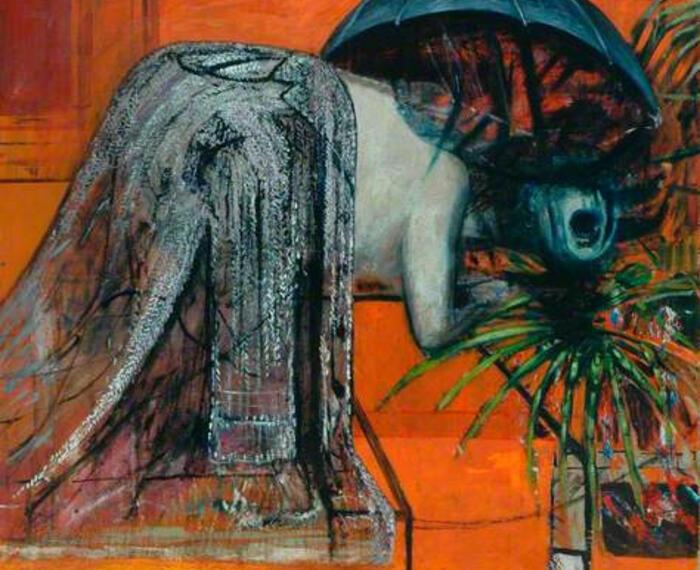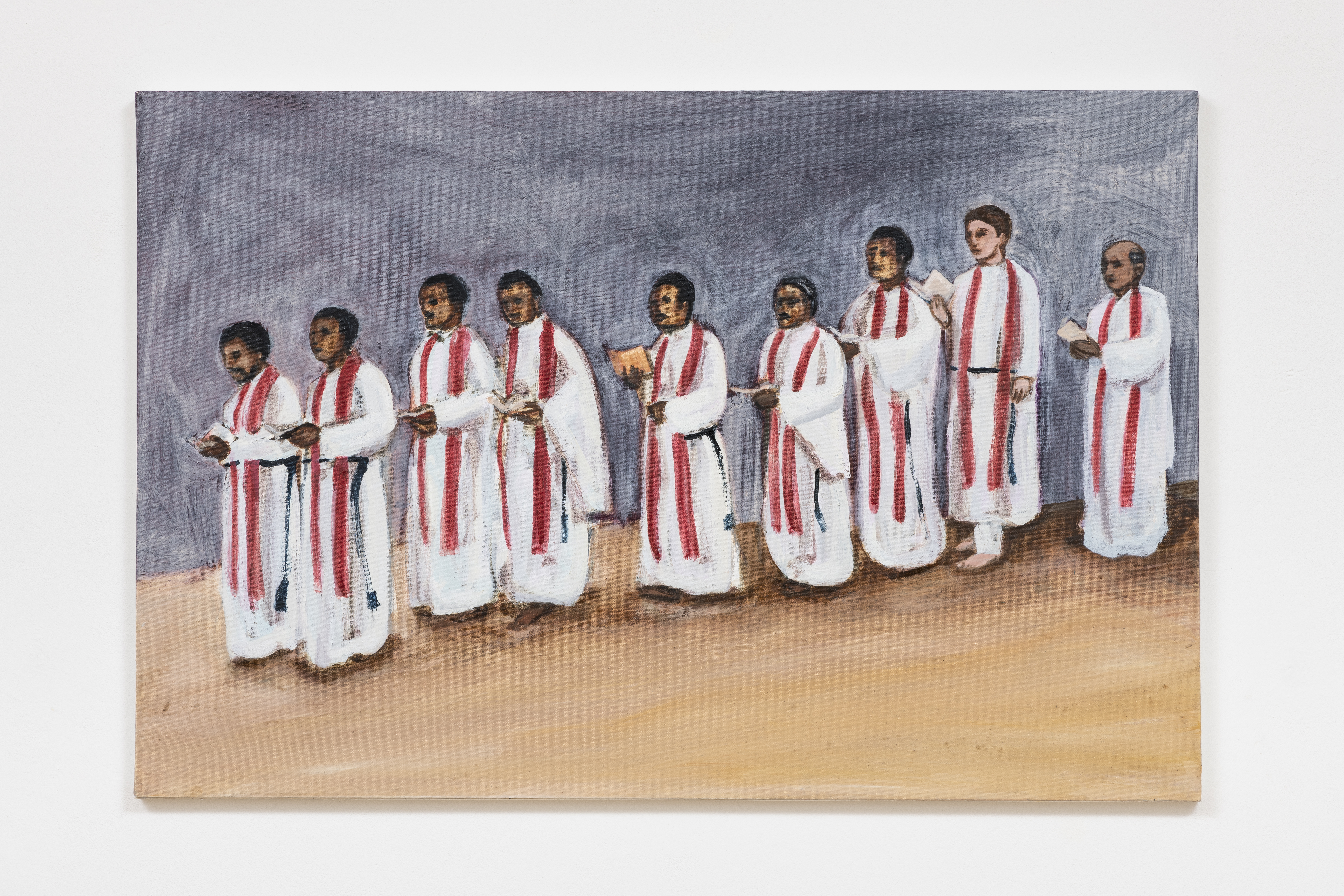Matthew Krishanu’s works draw on his early childhood spent in Dhaka. His parents moved there when Krishanu was two years old, in order to work for the Church of Bangladesh. Krishanu’s paintings meditate on the displacement he felt as a child with Indian and white British parents growing up in Bangladesh. His works also convey a sense of fascination with, but distancing from, the rituals of the church and the work of his parents, which he observed at close hand without ever feeling a part of.
Krishanu often employs shallow pictorial depth and backgrounds that veer into abstraction. He paints figures in those shallow spaces that often seem to exist in a liminal zone, at a remove from their surroundings. These techniques are seen in the work Procession of Priests, in which nine priests in long robes walk barefoot in the same direction. On closer inspection it is apparent that there is one white priest in amongst this procession of South Asian faces. From a western perspective this is a small but important reversal: a lone white subject (who is in fact Krishanu’s father) in a minority position. The painting subtly articulates the hybridised practices that took hold after the British had departed and speaks of the lives of those who lived in the postcolonial landscape. Empire might have been history, but its effects were still all around, a phenomenon that continues to this day.
Part of Krishanu’s ‘Mission’ series, Procession of Priests (2020) is informed by memories of his early childhood in Bangladesh, and by his own experiences and identity as a child of mixed heritage. He explains that these dreamlike works that reference half-remembered moments and places from his childhood are ‘about religion’ as opposed to being religious painting. When the artist was born his father was working as a curate in Bradford, but soon afterwards the family relocated to Selly Oak in Birmingham where his parents undertook training for a move to Bangladesh for mission work.
Birmingham Museums Trust’s ongoing collecting aims include acquiring works that explore the lives of Birmingham people, their childhoods and faiths, as well as the histories and continuing legacies of the British Empire. Krishanu’s work is a beautiful intersection of these interests.


